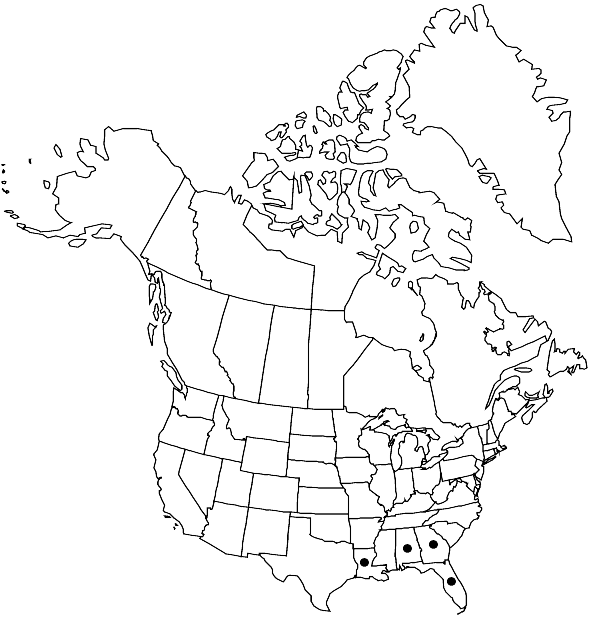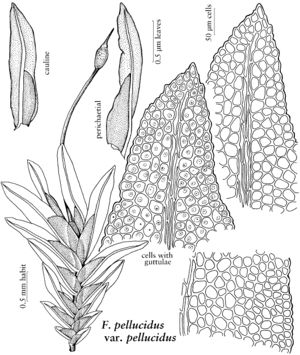Fissidens pellucidus var. pellucidus
Plants to 4.5 × 2 mm. Stem unbranched; axillary hyaline nodules absent; central strand absent. Leaves as many as 9 pairs, lanceolate, acute to obtuse, to 1.7 × 0.3 mm; dorsal lamina narrowed proximally, ending at insertion, not decurrent; vaginant laminae 1/2 leaf length, unequal, minor lamina ending ± midway between costa and margin, often narrowed and ending on or near costa; margin ± entire to crenulate, elimbate except for weak limbidium sometimes on proximal half of vaginant laminae of perichaetial and perigonial leaves; costa ending 3–7 cells before apex, sometimes percurrent, bryoides-type; lamina cells 1-stratose, distinct, smooth, firm-walled, hexagonal, 14–18 µm. Sexual condition rhizautoicous; perigonial stems short, proximal to elongate stems and on stems ± as long as perichaetial stems. Sporophytes 1 per perichaetium. Seta to 5 mm. Capsule theca exserted, erect, radially symmetric, to 0.7 mm; peristome scariosus-type; operculum to 0.7 mm. Calyptra cucullate, smooth, to 0.6 mm. Spores 9–11 µm.
Habitat: Soil, rocks and stones (usually basic) in shaded ravines and along streams, infrequently around bases of trees
Distribution

Ala., Fla., Ga., La., Mexico, West Indies, Central America, South America, Asia, Africa.
Discussion
Fissidens pellucidus, a species principally tropical in distribution, is best recognized by its shiny appearance and distinct, guttulate, regularly hexagonal laminal cells. The cell walls are smooth, although the guttulae can be mistaken for papillae. In addition, the leaf margin is elimbate except for an occasional weak limbidium on the proximal parts of perichaetial leaves, and the vaginant laminae either end ± midway between the costa and margin or are narrowed and end on the costa. The plants, especially the costae and stems, are often reddish.
Selected References
None.
